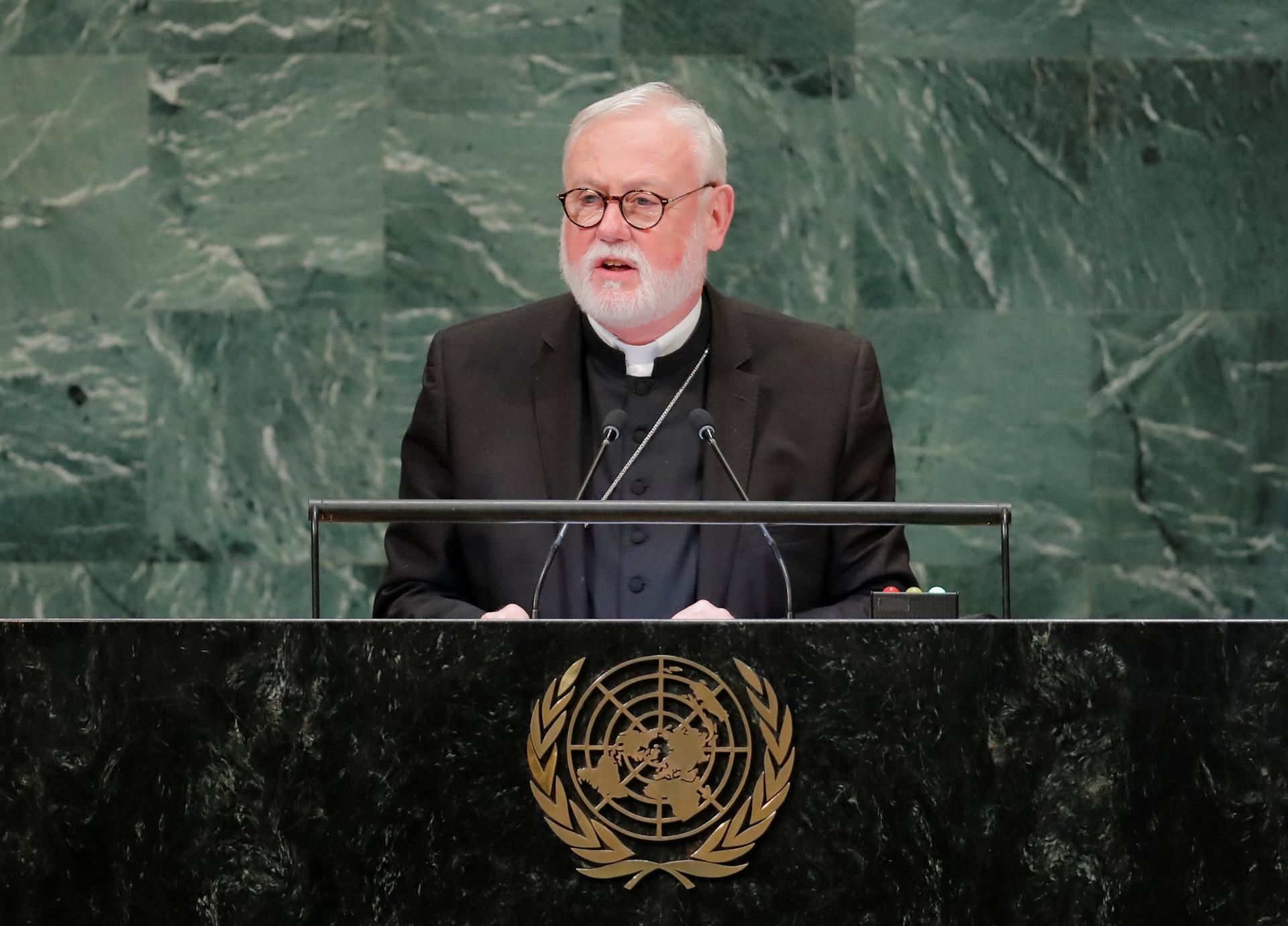ROME – The Vatican’s foreign minister says Ukraine has the right to defend itself from Russia’s invasion, thus it is licit for the world to send the country weapons.
Archbishop Paul Richard Gallagher told Italy’s RAI state television that such arms delivery “has to be proportional.”
“We don’t want to once again enter into an arms race. But this war is more dangerous [than other wars have] ever been, because of the nuclear dimension,” said the Liverpool-born archbishop, who serves as the Vatican’s Secretary for Relations with States.
“In this sense, yes, Ukraine has the right to defend itself, and it needs help to do so,” Gallagher insisted.
RELATED: Francis compares Ukraine to Rwanda, unsure about arming Kyiv
Gallagher will be in Kyiv starting Wednesday, and on Friday he is expected to meet with his Ukrainian counterpart, Foreign Minister Dmytro Kuleba. The trip was originally scheduled for several weeks ago, but was postponed after the prelate got COVID-19.
Gallagher was asked about Pope Francis’s views on NATO, the transatlantic military alliance, after the pontiff said that this coalition was “barking” at Russia’s door. The prelate responded that Francis is “very sensitive” to any action that could “jeopardize the main objectives: Dialogue and peace.”
“I think he recognizes the value of a security system for the world, for Europe, but it has to be proportional,” Gallagher said. “And then the pope is anxious, very attentive, to prevent [the world] from entering again into a world in an arms race. It has to be proportionate, and leave the possibility for dialogue and discussion, to bring peace to this martyr nation.”
Speaking about the United States and China and what their role is during this war, Gallagher said that “we all have a moral responsibility to fulfill our own role at this time.”
“It is true that the institutions were weakened by this war and the inability to quickly create peace,” he said. “Yet we must not abandon the security and multilateral structures, but strengthen them. Obviously, the big nations, such as the United States, China and the nations of the [United Nations] Security Council have a very, very important role to play, and they must understand the urgency with which we are confronted.”
By “important role,” he does not only mean weapons: “I believe that words are of paramount importance, especially in diplomacy and dialogue.” Words can and have been instrumentalized, he said, leading to a mistrust from people to statements. Yet he believes that sincerity is still needed, “especially when, with our words, we can put people’s lives at risk.”
Gallagher also acknowledged that there is a religious dimension in this conflict, with “tensions” between the Russian Orthodox Patriarch of Moscow Kirill and Ecumenical Patriarch Bartholomew, which have only grown after the invasion.
“Unfortunately, it must be recognized that in Orthodoxy there is a strong national identity, state churches,” he said. “Thus, it is very difficult for the Russian Orthodox Church to make decisions critical of or opposed to the government. But as the pope says, we have to overcome these positions in order to be true promoters of peace.”
Gallagher also explained Pope Francis’s recent warning against Kirill becoming an “altar boy for the Kremlin,” during an interview with the Italian newspaper Corriere della Sera. The archbishop said the pontiff had warned this is something that could happen to any prelate.
Ecumenical relations with Orthodoxy, particularly Moscow and Istanbul, he said, are priorities for the Argentine pontiff, and even though the meeting between Francis and Kirill that had been penciled in for mid-June won’t be taking place, dialogue will continue.
Gallagher called the pope’s decision to postpone the meeting as “wise,” because “he is aware that his steps and those of the Holy See must be a positive contribution, not make things worse but nurture the ways of peace.”
“The Holy See has a vocation to dialogue,” he said. “We seek not to get involved in favor of one side or the other, but we look for spaces of dialogue among all to find solutions to this terrible conflict.”
Asked about the importance of gestures such as Francis’s meeting with the wives of two Ukrainian soldiers trapped in a steel plant in Mariupol, Gallagher said that “such gestures are not enough, but they are important.”
“It is better to do all that you can, [even if] you cannot change reality,” he said. “But the pope, who is a master of gestures” gave a clear message of support to the millions who have fled Ukraine, in particular, the women and children so affected by the war.
“The pope said he weeps when thinking of these situations, and this is true; he has a deep sensitivity,” Gallagher said. “There is a need to communicate these situations of suffering to the whole world.”
Follow Inés San Martín on Twitter: @inesanma














